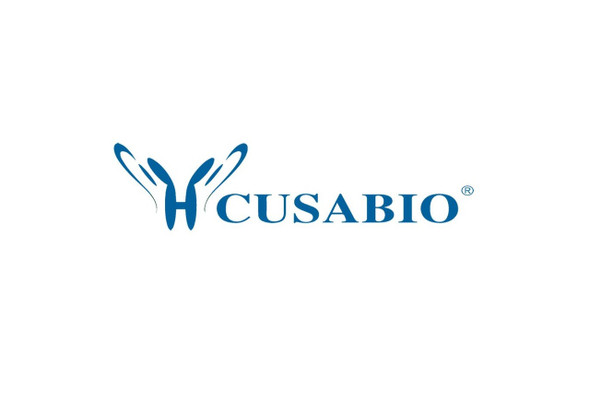Cusabio Active Proteins
Recombinant Human C-C motif chemokine 15 protein (CCL15) (Active) | CSB-AP000591HU
- SKU:
- CSB-AP000591HU
- Availability:
- 5 to 10 Working Days
Description
Recombinant Human C-C motif chemokine 15 protein (CCL15) (Active) | CSB-AP000591HU | Cusabio
Protein Description: Full Length of Mature Protein
Alternative Name (s) : Chemokine CC-2, Leukotactin-1, LKN-1, MIP-1 delta, Macrophage inflammatory protein 5
Gene Names: CCL15,MIP5,NCC3,SCYA15
Research Areas: Immunology
Species: Homo sapiens (Human)
Source: E.Coli
Tag Info: Tag-Free
Expression Region: 22-113aa
Sequence Info: QFINDAETEL MMSKLPLENP VVLNSFHFAA DCCTSYISQS IPCSLMKSYF ETSSECSKPG VIFLTKKGRQ VCAKPSGPGV QDCMKKLKPY SI
Biological Activity: Fully biologically active when compared to standard. The biological activity determined by a chemotaxis bioassay using human T-lymphocytes is in a concentration range of 1.0-10 ng/ml.
MW: 10.2 kDa
Purity: >97% as determined by SDS-PAGE and HPLC.
Endotoxin: Less than 1.0 EU/µg as determined by LAL method.
Relevance: Chemotactic factor that attracts T-cells and monocytes, but not neutrophils, eosinophils, or B-cells. Acts mainly via CC chemokine receptor CCR1. Also binds to CCR3. CCL15 (22-92) , CCL15 (25-92) and CCL15 (29-92) are more potent chemoattractants than the small-inducible cytokine A15. {ECO:0000269|PubMed:15905581}.
PubMed ID: 9548457; 9624581; 9600961; 10213461; 15489334; 15340161; 9129202; 9558365; 15905581; 10320325
Notes: Repeated freezing and thawing is not recommended. Store working aliquots at 4℃ for up to one week.
Function: Chemotactic factor that attracts T-cells and monocytes, but not neutrophils, eosinophils, or B-cells. Acts mainly via CC chemokine receptor CCR1. Also binds to CCR3. CCL15 (22-92) , CCL15 (25-92) and CCL15 (29-92) are more potent chemoattractants than the small-inducible cytokine A15.
Involvement in disease:
Subcellular Location: Secreted
Protein Families: Intercrine beta (chemokine CC) family
Tissue Specificity: Most abundant in heart, skeletal muscle and adrenal gland. Lower levels in placenta, liver, pancreas and bone marrow. CCL15 (22-92) , CCL15 (25-92) and CCL15 (29-92) are found in high levels in synovial fluids from rheumatoid patients.
Paythway: Chemokinesignalingpathway
Form: Lyophilized powder
Buffer: Lyophilized from a 0.2 µm filtered PBS, pH 7.4
Reconstitution: We recommend that this vial be briefly centrifuged prior to opening to bring the contents to the bottom. Please reconstitute protein in deionized sterile water to a concentration of 0.1-1.0 mg/mL.We recommend to add 5-50% of glycerol (final concentration) and aliquot for long-term storage at -20℃/-80℃. Our default final concentration of glycerol is 50%. Customers could use it as reference.
Uniprot ID: Q16663
Uniprot Entry Name: CCL15_HUMAN
HGNC Database Link: HGNC
UniGene Database Link: UniGene
KEGG Database Link: KEGG
STRING Database Link: STRING
OMIM Database Link: OMIM









